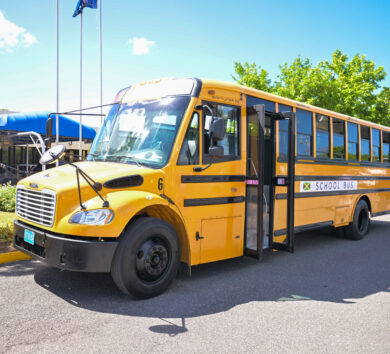

Sasha-Gay Wright
The Caribbean region faces unique healthcare challenges, ranging from limited resources to inadequate access in rural areas, compounded by frequent natural disasters. As a region highly vulnerable to hurricanes, floods, and earthquakes, the Caribbean must continuously innovate to strengthen its healthcare infrastructure.
Biomedical engineering, an interdisciplinary field combining engineering principles with medical and biological sciences, offers promising solutions to these challenges. By addressing issues like medical equipment shortages, rural healthcare access, and disaster preparedness, biomedical engineers play a critical role in improving healthcare delivery and strengthening Caribbean healthcare systems.
Medical Equipment Shortages
One of the most pressing issues in Caribbean healthcare is the shortage of medical equipment. Many Caribbean nations face budgetary constraints and rely heavily on imports for medical devices. This often leads to equipment shortages, limited access to essential tools, and, in some cases, outdated technology. These challenges are especially evident in public hospitals and health centers, where medical equipment may be inadequate or under-maintained.
Biomedical engineers can play a pivotal role in addressing these shortages by designing and developing affordable, durable, and innovative medical devices that cater specifically to the needs of Caribbean healthcare systems. For instance, low-cost diagnostic devices, such as portable ultrasound machines or diagnostic kits for common diseases, could make healthcare more accessible, especially in regions with limited resources. Moreover, biomedical engineers can focus on improving the longevity and maintenance of existing equipment, ensuring that devices are functional for longer periods and can be repaired locally, reducing reliance on expensive foreign imports.
In addition to designing new medical equipment, biomedical engineers can assist in the optimization of hospital systems. Through data analysis and systems management, they can streamline healthcare operations, minimizing delays and ensuring that existing equipment and resources are used efficiently.
Improving Rural Healthcare Access
Rural areas in the Caribbean often suffer from limited access to healthcare facilities and medical resources. The problem is exacerbated by geographic isolation, poor transportation infrastructure, and a lack of trained medical professionals. For many people in rural communities, accessing even basic healthcare services is a significant challenge. Long distances to health facilities, combined with a shortage of medical practitioners and healthcare workers, leave many without essential medical care.
Biomedical engineers have the potential to change this dynamic by developing solutions that bridge the healthcare gap between urban and rural areas. One of the most significant contributions they can make is the development of mobile healthcare units equipped with essential medical technologies. These units could bring critical healthcare services, including diagnostics, imaging, and basic treatments, directly to underserved rural communities. Such innovations would drastically reduce the need for rural patients to travel long distances, which is often a barrier to receiving timely care.
Enhancing Disaster Preparedness and Response
The Caribbean is no stranger to natural disasters, with hurricanes, earthquakes, and floods posing regular threats to both lives and infrastructure. The healthcare system, already stretched thin in many areas, often faces overwhelming challenges in the aftermath of disasters. Hospitals and clinics may be damaged and medical supplies can become scarce. The need for effective disaster preparedness and response strategies is, therefore, critical for ensuring that health systems remain functional during and after a disaster.
Biomedical engineers can contribute to disaster preparedness and response by developing advanced medical technologies for remote diagnostics and treatment. In post-disaster situations, access to healthcare professionals can be limited, and many people may not be able to reach medical facilities. Portable diagnostic devices, telemedicine solutions, and even drone delivery systems for medical supplies can all be part of an effective disaster response strategy.
The Biomedical Engineering Programme at UWI Mona: Pioneering Innovation in the Caribbean

The University of the West Indies (UWI) Mona offers the only Biomedical Engineering programme in the English-speaking Caribbean. Upon graduation, students possess a solid foundation in engineering mathematics, programming, microprocessors, and control systems, equipping them with the skills to design and maintain biomedical devices. Their expertise extends to biomaterials, biomechanics, rehabilitation engineering, and medical instrumentation, enabling them to improve patient care through advanced medical technologies.
Beyond theoretical knowledge, students actively engage in hands-on projects that address real-world healthcare challenges. Through a collaboration with the University of Pennsylvania, students designed and built an overhead harnessing system, which was donated to the Sir John Golding Rehabilitation Centre to aid in physical therapy. Additionally, students have fabricated solar-powered lateral flow systems for diagnostics in resource-limited settings, developed prosthetics to enhance mobility, and created an automated CPR device to improve emergency response efficiency. These projects not only provide practical training but also directly benefit healthcare institutions in the region.
The programme also includes courses in clinical engineering, engineering management, and technical communication, preparing students to navigate regulatory frameworks and collaborate effectively in multidisciplinary teams. Graduates are well-equipped to work in areas such as medical device development and maintenance, hospital equipment management, and healthcare technology innovations. Exposure to electives in specialized fields like robotics, tissue engineering, and the Internet of Things (IoT) fosters innovation, making UWI Mona graduates highly sought after by medical device manufacturers, healthcare startups, and research institutions. As the only programme of its kind in the region, UWI Mona plays a crucial role in cultivating local talent that will drive healthcare advancements and strengthen the Caribbean healthcare system.
The Way Forward
Biomedical engineering has the potential to revolutionize healthcare in the Caribbean by addressing critical challenges such as medical equipment shortages, rural healthcare access, and disaster preparedness. By developing affordable, innovative technologies and solutions tailored to the region’s unique needs, biomedical engineers can play a vital role in strengthening Caribbean healthcare systems. Furthermore, local capacity building, collaboration with international partners, and investment in research and development will ensure that these solutions are sustainable and accessible to all. As the Caribbean continues to face health and infrastructure challenges, biomedical engineering offers a powerful tool to improve healthcare delivery and save lives.
Sasha-Gay Wright is Head of Programme—Biomedical Engineering, at the University of the West Indies






Comments